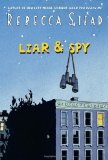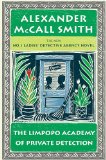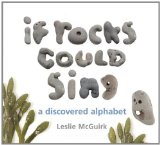Review of The Actor and the Housewife, by Shannon Hale
by Shannon Hale
Bloomsbury, New York, 2009. 339 pages.
Starred Review
2012 Sonderbooks Stand-out: #6 Non-fantasy Fiction
This is the one book by Shannon Hale that I don’t own, and that I didn’t read as soon as it came out. Why? Well, I knew it’s about a Mormon housewife who becomes good friends with a heart throb actor. I’ve always believed that men and women can be friends without hurting their marriages. But when this came out, I had just been burned. My own marriage had imploded. My husband claimed he was friends with a young female co-worker, and it turned out that was just a cover for something else, and our marriage didn’t survive.
But this book is not a treatise on marriage and friendship. If you want that, I highly recommend NOT “Just Friends,” by Shirley Glass. (A nice rule of thumb: Where are the windows and the walls? If the walls are around the marriage and the windows around the friendship, good. You should be able to talk with your spouse about the friendship, rather than the other way around.) This book is a story. It’s a story of a good friendship, but most of all, it’s a story about a great marriage.
Now, it’s not easy on the marriage for Becky Jack to be great friends with a handsome actor. She wrestles with what’s right. Her husband wrestles with what’s right. She even talks with her bishop about it. But let me say it again: This is a great story! These people seem real and alive and this is about a funny, poignant, and difficult situation and how it affects two families and the people around them.
As a matter of fact, I hadn’t decided which book I was going to read next when I checked it out. I brought several candidates upstairs, and thought I’d just read a few pages to decide if I wanted to read this next. . . and ended up finishing the book at 5:30 am the following morning. This was NOT what I had planned. It wasn’t remotely a good idea. But wow! What a good story!
Becky and Felix Callahan meet, by a fluke, when she is in Hollywood, looking over a contract for a screenplay she’s sold to his producer. She is hugely pregnant and not at her best. Then they end up being at the same hotel. They share a ride, have dinner. One thing leads to another, and they become friends.
The book is about a long and wonderful friendship. It covers a span of many years, with high points, hilarious moments, awkward times, and big setbacks. In the long run, the book is even more about Becky’s marriage. Becky thinks a lot about how she can be friends with this Hollywood star, yet still be fully and completely in love with her husband. It works.
Here’s a bit where Becky has just met Felix and ends up sharing a ride with him to the hotel:
Becky sneaked a glance at Felix before returning her gaze to the window. That whole exchange had felt as unaccountably familiar as Felix’s presence. She had an ah-ha moment as she thought, Augie Beuter! That’s who Felix reminded her of — well, actually, the two men looked and acted about as much alike as Margaret Thatcher and Cher. But the way she and Felix had followed each other’s lead, the way their conversation flowed together, tuned for an audience, that’s how she and Augie used to be. He’d been her assistant editor on the high school paper and partner in debate club. Their five-year best friendship ended when they both married other people. Augie Beuter — she hadn’t seen him since her wedding, and she still missed him.
I don’t have room to insert one of the many scenes of their back-and-forth banter. You can tell they are indeed friends. Their two worlds are completely different, but their story is truly a delight.
squeetus.com
bloomsburyusa.com
Find this review on Sonderbooks at: www.sonderbooks.com/Fiction/actor_and_the_housewife.html
Disclosure: I am an Amazon Affiliate, and will earn a small percentage if you order a book on Amazon after clicking through from my site.
Source: This review is based on a library book from the Fairfax County Public Library.
Disclaimer: I am a professional librarian, but I write the posts for my website and blogs entirely on my own time. The views expressed are solely my own, and in no way represent the official views of my employer or of any committee or group of which I am part.
Please use the comments if you’ve read the book and want to discuss spoilers!









